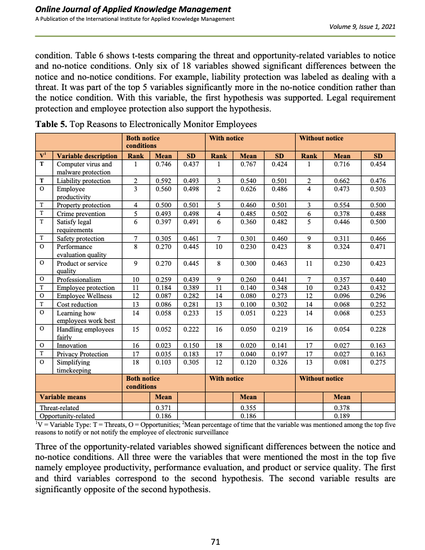
As a variety of electronic monitoring methods such as global positioning systems are available, monitoring employees without notice is a consideration even though several laws ban it and ethical questions remain. Monitoring without notice has risks that Human Resources (HR) managers should consider when they set monitoring policies to enhance knowledge management. A total of 174 HR managers were asked about their top reasons to electronically monitor employees with or without notice. About half received information that a company did not notify employees of electronic monitoring and the other half received the opposite information. Prospect theory was the basis for collecting data to understand the importance of risk in setting policies. It states that people in perceived good conditions avoid risk because they feel there is more to lose than to gain. The leading reason to electronically monitor employees for both groups was computer virus and malware protection. Organizational threats associated with legal issues showed more HR support for monitoring without notice. Opportunities associated with employee productivity indicated relatively more support for monitoring with notice. As a result of this research, perceived threats in the workplace are significant reasons why HR managers might not provide notice of monitoring in the workplace. This has potential legal and ethical implications.
Available at: http://works.bepress.com/gundars_kaupins/128/
